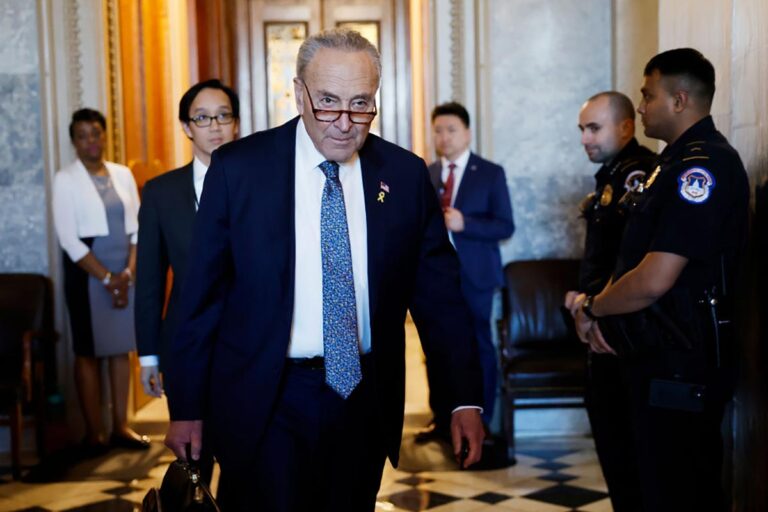
The war between Hamas and Israel has surpassed 162 days, with each week bringing new stories of both tragedy and hope.
Here are the main stories from this past week.
1. Senator Chuck Schumer calls for elections to replace Netanyahu government
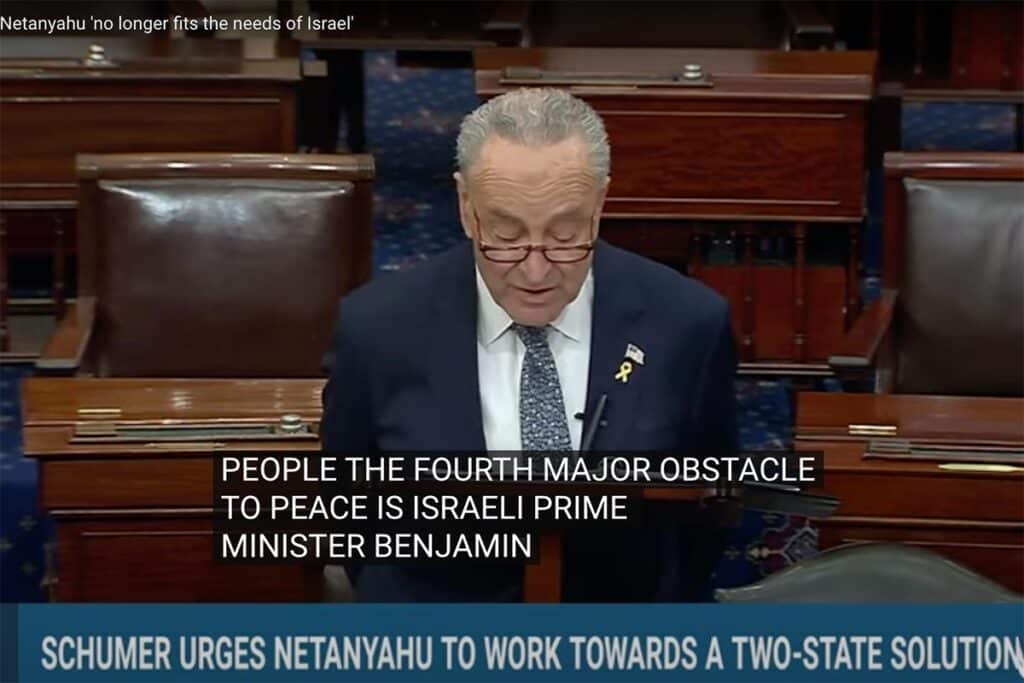
U.S. Senate Majority Leader Chuck Schumer sparked controversy on Thursday after he called on Israel to hold elections and replace Netanyahu’s government.
“As a lifelong supporter of Israel, it has become clear to me: The Netanyahu coalition no longer fits the needs of Israel after October 7,” said Schumer.
“At this critical juncture, I believe a new election is the only way to allow for a healthy and open decision-making process about the future of Israel, at a time when so many Israelis have lost their confidence in the vision and direction of their government.”
In his speech, Schumer identified “four major obstacles” standing in the way of peace: Hamas, radical right-wing Israelis, Palestinian Authority President Mahmoud Abbas, and Israeli Prime Minister Benjamin Netanyahu.
Netanyahu expressed outrage at Schumer’s comments, telling CNN’s Dana Bash on Sunday that the speech was “totally inappropriate. It’s inappropriate to go to a sister democracy and try to replace the elected leadership there.”
Meanwhile, Biden said that Schumer made a “good speech,” adding, “He expressed serious concerns, shared…by many Americans.”
Why it matters: While U.S. officials have clashed with Netanyahu before, this was the first time an American leader explicitly called for new elections in Israel.
Schumer’s remarks are notable given that he is the highest-ranking Jewish politician in the U.S. and known as a long-standing supporter of Israel.
The senator’s speech comes as calls for new elections increase within Israel as well, although even politicians who support new elections expressed discomfort with Schumer’s speech.
War cabinet minister Benny Gantz said that Schumer “made a mistake” by calling for elections in Israel to replace Netanyahu, saying, “Israel is a strong democracy, and only its citizens will determine its leadership and future.”
2. Biden, Netanyahu clash over Rafah, civilian casualties
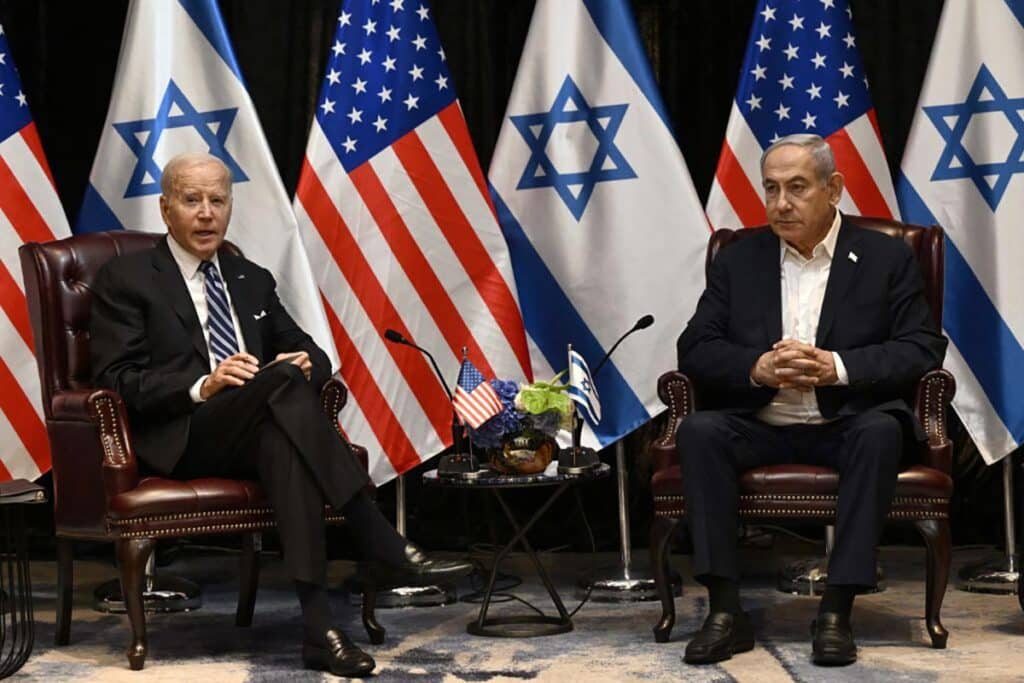
This past week, U.S. President Joe Biden and Israeli Prime Minister Benjamin Netanyahu continued to clash over how Israel is conducting the war in Gaza, further raising tensions between the two leaders.
In a recent interview with MSNBC, Biden said that Netanyahu “must pay more attention to the innocent lives being lost as a consequence of the actions taken.”
“He’s hurting Israel more than helping Israel,” the U.S. president continued. It’s contrary to what Israel stands for. I think it’s a big mistake.”
The president also warned Netanyahu against launching an invasion of Rafah, saying that this was a “red line” for his administration: “You cannot have 30,000 more Palestinians dead as a consequence of going after [Hamas]. There’s other ways to get to and deal with Hamas.”
Netanyahu pushed back in a separate interview, saying, “We’ll go there [to Rafah]. You know, I have a red line. You know what the red line is? That October 7 doesn’t happen again. Never happens again.” The two leaders have not spoken since Feb. 15.
Digging deeper: The relationship between Netanyahu and Biden has been tense since even before the war, as the two also clashed over the judicial reform program being promoted by Netanyahu’s government.
According to Axios, “U.S. officials say that an Israeli military operation in Rafah would likely lead to a significant shift in U.S. policy — including an end to the defense of Israel at the United Nations and restrictions on the use of U.S. weapons by the IDF in Gaza.”
Biden is reportedly even considering limiting military aid to Israel if the situation doesn’t change.
3. Deputy head of Hamas’s military wing killed in Israeli airstrike
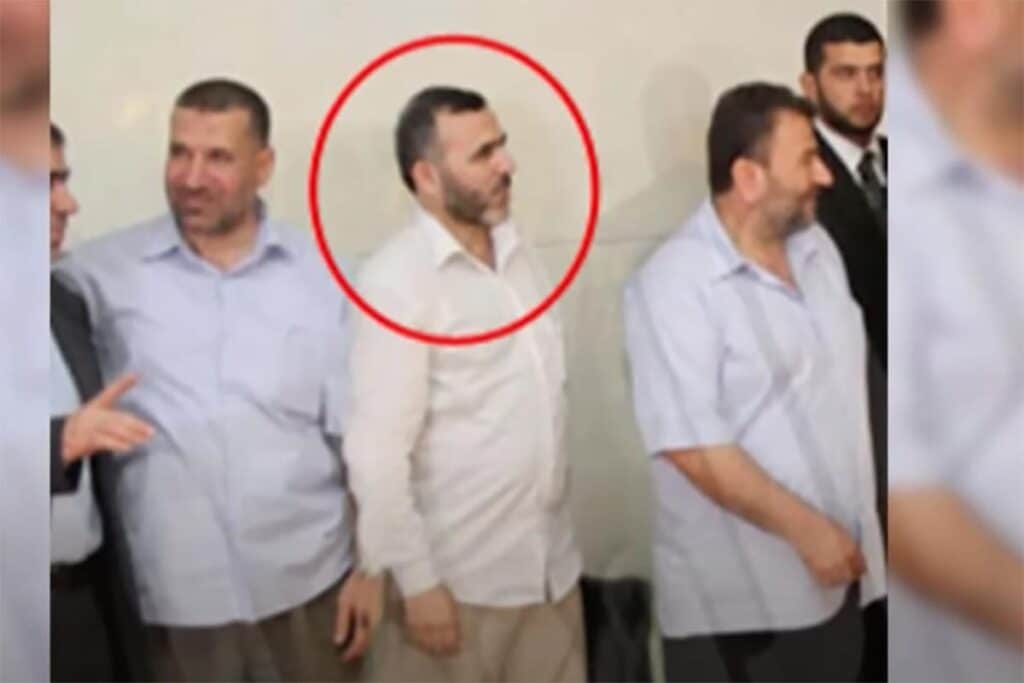
The IDF assassinated Marwan Issa, the deputy commander of Hamas’s military wing, in a strike in the central Gaza Strip on Saturday night.
The military was still working to confirm that Issa was, in fact, killed in the strike as of Friday, although Hamas has reportedly confirmed behind closed doors that Issa is dead.
Issa was considered one of the top four leaders of Hamas, serving as the deputy for Mohammed Deif, the head of Hamas’s al-Qassam Brigades.
Hadi Mustafa, a senior Hamas commander who directed terrorist cells in Lebanon, was also killed in a separate Israeli airstrike in Tyre, Lebanon, on Wednesday.
Why it matters: Issa’s assassination marks the highest-profile assassination of a Hamas leader in Gaza since the war began. The only other Hamas leader of that level assassinated during the war so far is Saleh al-Arouri, who was killed in an alleged Israeli airstrike in Beirut in January.
4. IDF commander urges politicians to be worthy of soldiers’ sacrifices
Lt. Col. Dan Goldfuss, the commander of the IDF’s 98th Division, expressed a rare public critique of politicians on Wednesday, stating in a press conference, “You must be worthy of us; you must be worthy of those soldiers who sacrificed their lives.”
Addressing leaders across the political spectrum, Goldfuss said, “You are obligated to ensure that we do not return to Oct. 6 [a reference to the division within Israel over the judicial overhaul] and that all the efforts and sacrifice were not for nothing.”
Goldfuss also urged lawmakers to “make sure that everyone takes part” in military service, referring to the exemption of Haredi Israelis from the mandatory draft.
He called for unity among politicians “to push away extremism,” saying, “Find what brings you together. We in the battlefield have found it and we do not intend to give up on it.”
His remarks received broad support, with politicians from both the right and left saying it was important to heed his words.
However, Goldfuss’s comments, which were not pre-approved by the IDF, led to a reprimand from IDF Chief of Staff Herzi Halevi, who said that the senior commander had overstepped the boundaries between politics and the military.
Digging deeper: Goldfuss is the commander of the division that has been at the forefront of the battle against Hamas in southern Gaza’s Khan Younis for the past three months.
His comments come amid increasing calls for elections in Israel and heated debates over contentious issues, including whether Haredi young men should be required to serve in the IDF.
The commander’s appeal to unity also comes after fighting surrounding the government’s judicial reform plan led to deep splits in Israeli society last year.
5. Hezbollah launches over 100 rockets in massive barrage
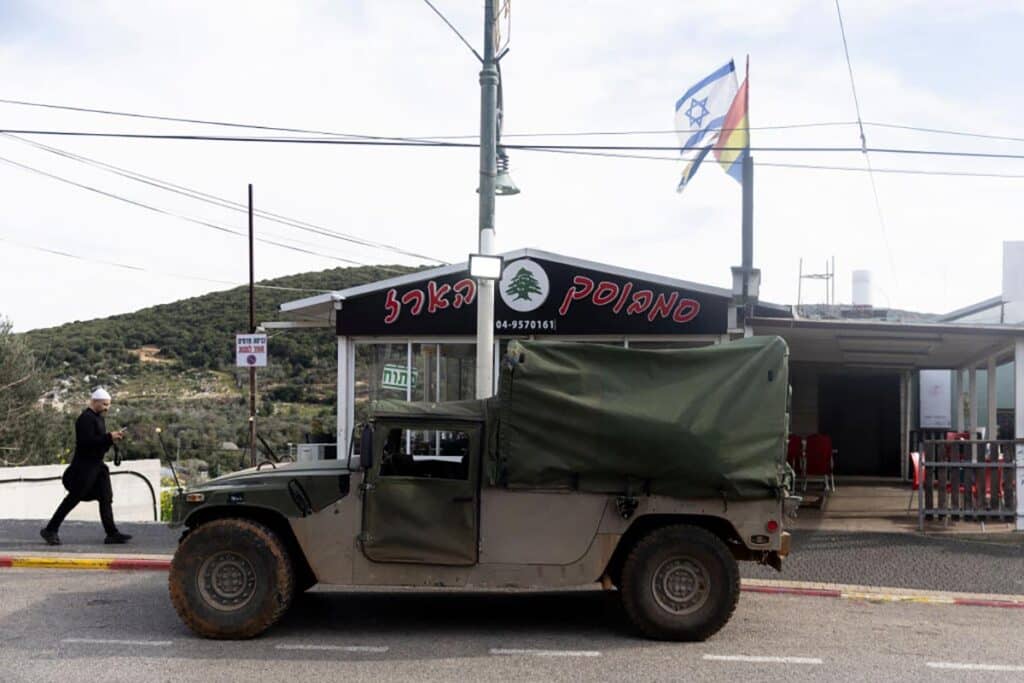
The fighting between Hezbollah and Israel on the northern front escalated at the beginning of the week after Hezbollah fired several large barrages of rockets toward northern Israel, and Israel responded with strikes deep in Lebanon.
Here’s what happened:
- Last Sunday, Hezbollah fired dozens of rockets toward Meron, near Safed, and toward Majdal Shams near Mount Hermon.
- The IDF responded on Monday by targeting sites belonging to Hezbollah’s air force in the Beqaa Valley, over 60 miles from Israel, killing at least one person.
- On Tuesday, Hezbollah fired over 100 rockets toward northern Israel, the largest single barrage since the war began.
- Shortly afterward, the IDF struck the Beqaa Valley again, targeting two command centers belonging to Hezbollah. The IDF said Hezbollah stored “significant equipment” for strengthening its weapons arsenal at the site.
Why it matters: The recent escalation in hostilities between Hezbollah and Israel marks a significant increase in tensions. Tuesday’s rocket barrage was the largest by Hezbollah since the war’s onset, and the IDF’s subsequent strikes were some of the deepest into Lebanese territory.
This raises concerns about the potential for a larger conflict or even a full-scale war, which would have devastating consequences for both Israel and Lebanon, with neither side expected to gain a significant advantage.
